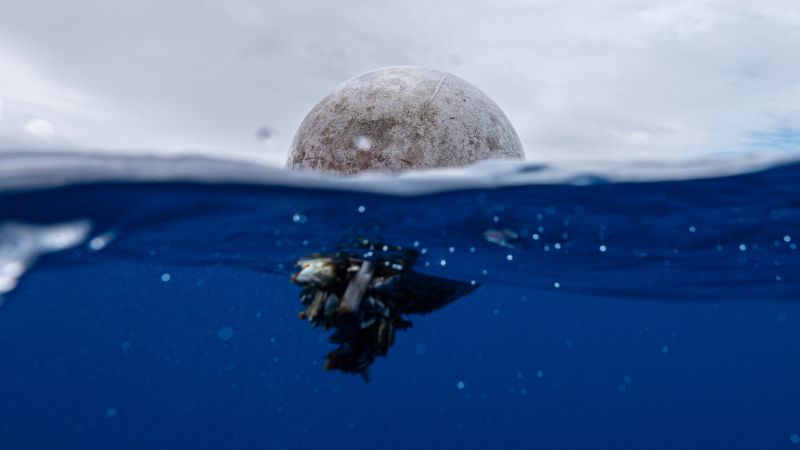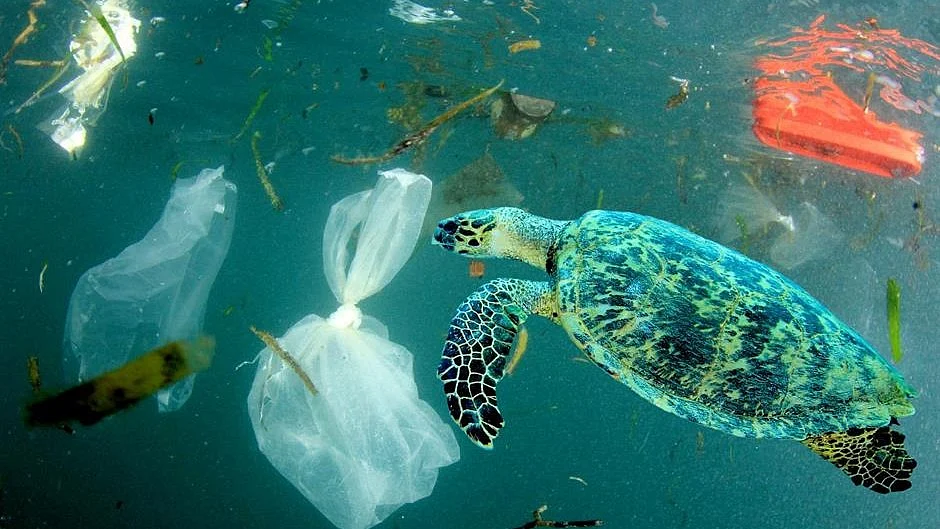Plastic pollution is one of the environmental challenges the world is facing today. The ocean has become a dumping ground for plastic waste, with devastating consequences for marine life and the environment. According to a recent study published in the journal Plos One, the world’s oceans are polluted with an estimated 171 trillion plastic particles, creating a “plastic smog.”

The study found a rapid increase in ocean plastic pollution since 2005, and without urgent policy intervention, the rate at which plastic waste enters the ocean will increase by around 2.6 times between now and 2040.
The primary cause of plastic pollution in oceans is the increasing production and consumption of plastic. The plastic industry has grown exponentially in the last few decades, and single-use plastics have become ubiquitous in our daily lives.
Plastic waste management systems have not kept pace with the increase in production, leading to the accumulation of plastic waste in landfills and the environment.
A significant amount of plastic waste ends up in rivers and eventually the ocean, where it can remain for hundreds of years without decomposing.
The consequences of plastic pollution in oceans are severe and far-reaching. Marine life can become entangled in plastic waste or mistake it for food, leading to injury and death.
Plastic waste can also release toxic chemicals into the water, posing a threat to human health and the environment.
The accumulation of plastic waste on beaches and in the ocean also harms the tourism industry and the livelihoods of people who depend on the ocean for their livelihoods.
The increase in plastic pollution in oceans is a result of the lack of effective policy measures to regulate plastic production and consumption.
The study published in Plos One found a parallel trend between the increase in plastic pollution and the decrease in effective laws and agreements to reduce ocean pollution.
While there have been numerous voluntary agreements to reduce plastic waste, they have been largely ineffective in curbing the production and consumption of plastic.
Urgent policy intervention is needed to address the plastic problem at its source. There are several potential policy interventions that can be implemented to reduce plastic pollution in oceans.
The first is to regulate the production and consumption of single-use plastics. This can be done through the implementation of taxes or bans on specific types of single-use plastics.
Another potential intervention is to improve plastic waste management systems. This can be done through the implementation of recycling programs and the development of biodegradable plastics.
Addressing the problem of plastic pollution in oceans requires international cooperation. The United Nations has agreed to create a legally binding global plastics treaty by 2024, which would address the whole life cycle of plastics from production to disposal.
However, there are significant divisions among countries over whether this treaty should include cuts in plastic manufacturing. It is essential that countries come together to address this issue and find a solution that works for all.
Another critical component of reducing plastic pollution in oceans is corporate responsibility. Companies that produce plastic must take responsibility for the entire life cycle of their products.
This includes designing products for recyclability and using recycled materials in their production. Companies must also take responsibility for the disposal of their products and invest in waste management systems.
Plastic pollution in the world’s oceans has increased rapidly since 2005, according to a study published in the journal Plos One.
The study used 11,777 samples taken from the surface layer of oceans to estimate the average amount of microplastics in that layer over time.
The researchers identified similar trends for plastic pollution on beaches, which suggests that plastic pollution in the oceans has reached unprecedented levels.
Without urgent policy intervention, the rate at which plastic waste will enter the ocean between now and 2040 will increase by around 2.6 times, according to the study.
Plastic production has soared in the last few decades, especially single-use plastics, and waste management systems have not kept pace.
Only around 9% of global plastics are recycled each year, and huge amounts of that plastic waste end up in the oceans.
The majority of plastic waste in the oceans comes from land, swept into rivers by rain, wind, overflowing storm drains, and littering.
A smaller but still significant amount of plastic waste in the oceans comes from fishing gear that is lost or simply dumped into the ocean.
Since the 1970s, there have been a slew of agreements aimed at stemming the tide of plastic pollution reaching the ocean, yet they are mostly voluntary, fragmented, and rarely include measurable targets.
The study authors call for urgent international policy intervention to limit plastic production and address the plastic problem at its source.
The United Nations has agreed to create a legally binding global plastics treaty by 2024, which would address the whole life of plastics from production to disposal.
However, big divisions remain over whether this should include cuts in plastic manufacturing, which is predicted to quadruple by 2050.
Policies to reduce the amount of plastic produced in the first place are the only real solution, especially as companies are continuing to find new ways to pump more plastics into the market.


/cloudfront-us-east-2.images.arcpublishing.com/reuters/DWWKTREKV5ONNBD6SHC4233TIU.jpg)



















+ There are no comments
Add yours